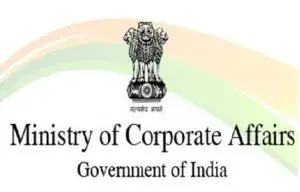Source: www.mca.gov.in
Working of the MCA constituted Committee under Companies Act, 2013
Update:
As per a press release[1], dated July 15, 2018, by the Ministry of Corporate Affairs (hereinafter referred as the ‘MCA’), a 10-member committee has been constituted for the purpose of reviewing offences and penal provisions under the Companies Act, 2013 (hereinafter referred to as the ‘Act’).
Agenda of the Committee:
The Committee has been constituted with the agenda of reviewing of existing compoundable offences under the Act which may need decriminalization when such offences can be dealt with through company’s internal mechanisms. This move has been aimed in order to allow the trial courts to devote more attention on offences that are more serious in nature. This committee shall be chaired by the Secretary of MCA.
Differentiating compoundable and non-compoundable offences:
The press release mentions that the existing compoundable offences under the Act, which include offences that are punishable with fine only or punishable with fine or imprisonment or both, may be examined in respect of whether they can be considered as ‘civil wrongs’ or ‘defaults’ and a penalty may be imposed for first non-compliance/ default and only in subsequent cases of non-compliance/ default it may be categorized as “offence” under the Act which would be triable by a special court.
In case of non-compoundable offences which include offences that are punishable with imprisonment only, or punishable with imprisonment and also with fine as per the Act may be considered for re-categorization as compoundable in nature.
Report of the Committee:
This Committee has to submit its final report/ recommendations within thirty days to the Central Government for further consideration.
Terms of reference:
The press release mentions the following as the terms of reference of the Committee:
- Examination of acts which constitute compoundable offences under the Act and recommend they may be categorized as such acts which constitute civil liabilities wherein the company and its ‘officers in default’ are liable for penalty;
- Review of the non-compoundable offences and recommend whether any such provisions require re-categorization as compoundable offences;
- Examination of penalty mechanisms under the Act and provide recommendations with respect to the same;
- Providing outline of company’s internal mechanisms whereby penalty may be levied in a system driven manner;
- Formulation of draft changes in the law; and
- Any other relevant matter.
[1] Available at: http://pib.nic.in/newsite/PrintRelease.aspx?relid=180590


